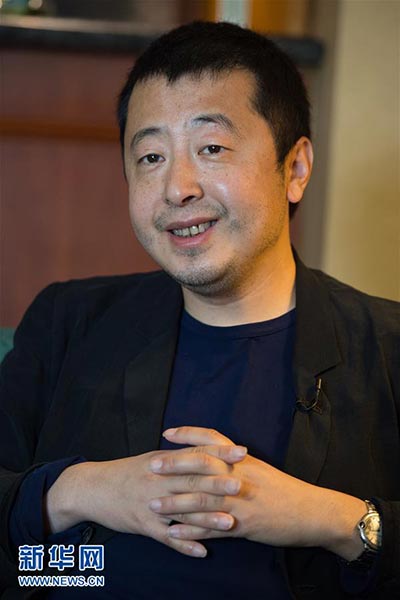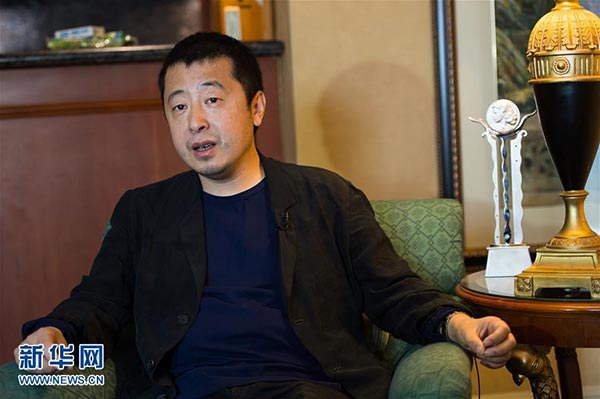Jia Zhangke on VR: I'm always learning
 0 Comment(s)
0 Comment(s) Print
Print E-mail Chinadaily.com.cn, November 22, 2016
E-mail Chinadaily.com.cn, November 22, 2016
As the world evolves and technology renews itself, Chinese director Jia Zhangke, one of China's top class filmmakers, feels like he still has much to master.
 |
|
Director Jia Zhangke. [Photo/Xinhua] |
"At the turn of the century, digital technology overtook film, and then came 3D, and now VR (virtual reality). Technology in filmmaking is undergoing drastic changes, and I have always felt like I'm a student in the art of films. The world is full of unknowns and I'm trying my best to understand," said the award-winning Jia while attending the 38th Cairo International Film Festival.
Jia is in Cairo to receive the lifetime achievement award at the film festival's opening ceremony.
As one of the first batch of directors from the Chinese mainland to adopt digital cameras, Jia is no stranger to adopting new technology. And as it turns out, he revealed that he is currently working on a feature VR film.
"VR is used in filmmaking in short clips, maybe five to 10 minutes of length, but I want to challenge a feature film to see what kind of viewing experience audiences are going to have (with VR) in 80 to 90 minutes," Jia said.
The arrival of a new technology is often a double-edged sword. It makes more novel forms of art expression possible. It gives more room for directors to create. At the same time, audiences may need more time to adjust to the new form of viewing. And sometimes the technology itself puts constraints on the forms of storytelling.
Director Ang Lee's new film, Billy Lynn's Long Halftime Walk, shot in an unprecedented 120 frames per second, is experiencing just that.
To shoot at 120 frames per second means bringing reality in its most entirety to viewers, and the surreal viewing experience of Billy Lynn is getting mixed reviews. Some appreciate being engaged as if they are part of the film, while others say the visuals divert their attention from the story itself.
Lee is taking the criticism in stride, and is fully aware that the hyper-real visuals are a lot to absorb. "It's not a universally pleasing movie. It if doesn't split, there's something wrong with it," Lee said.
 |
|
Director Jia Zhangke. [Photo/Xinhua] |
Jia is in the same boat with Li. And to make it work better, he believes that changes are inevitable.
"When you put on those VR glasses and soak deeply into the world of cinema, you can choose to experience time and space at your free will, but this 'world' is the creation of the director. There's a subtle balance between the two. This brings changes to how a director works: how he tunes the sound, films with the camera and instructs actors to act," Jia said.
Jia is unsure yet how he will present his VR film to the audience, but he is optimistic about the prospects of showings.
"After all, someone's got to move closer to new technology. Technology is never born out of thin air; they are created to meet new needs, and audiences want to experience it at first hand."
Jia is one of the "sixth generation" directors in China, alongside art house film director Wang Xiaoshuai and others. He has won numerous awards on the world stage, including the Golden Lion at the Venice Film Festival for his film, Still Life, in 2006 and Best Screenplay for A Touch of Sin at the 2013 Cannes Film Festival.






Go to Forum >>0 Comment(s)